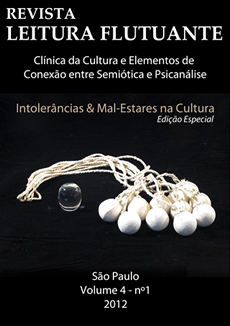Regulating homophobic hate speech: back to basics about language and politics?
Palavras-chave:
homophobia, hate, language, queer, politicsResumo
Recently, there has been an explosion of legislation designed to curb ‘hate crime’ that has been introduced by the previous Labour Government after 1997. This paper takes the most recent instance of incitement to hatred on grounds of sexual orientation as its starting point. I discuss the legislation in the context of debates around free speech and artistic autonomy. Making use of post-stucturalist, psychoanalytic and discourse theories I argue that there are conceptual and practical difficulties attached to the regulation of hate speech if analysed through a politics of subversive repetition. I conclude that a better approach is to think about language as reciprocal communication and to develop a politics of sustained engagement with society that ultimately adopts a more voluntary approach to changing popular uses of language.
About the author:
Andy Harvey is a Doctoral student in the Department of Psychosocial Studies at Birkbeck, University of London. His research interests are in sport, gender and sexuality. His peer-reviewed articles include, “Staging the Sixties, ‘This Sporting Life’ by David Storey”, Thirdspace journal (accepted for publication), “Regulating Homophobic Hate Speech”, Sexualities Journal (March 2012), “Tom Brown’s Schooldays: ‘Sportsex’ in Victorian Britain”, Critical Survey (May 2012). He is the winner of the 2012 Sport Literature Association’s Lyle Olsen award for best graduate essay for “It’s only a game? Sport, sexuality and war in Don DeLillo’s End Zone”.
Métricas
Downloads
Como Citar
Edição
Seção
Licença
Proposta de Política para Periódicos de Acesso Livre
Autores que publicam nesta revista concordam com os seguintes termos:
- Autores mantém os direitos autorais e concedem à revista o direito de primeira publicação, com o trabalho simultaneamente licenciado sob a Licença Creative Commons Attribution que permite o compartilhamento do trabalho com reconhecimento da autoria e publicação inicial nesta revista.
- Autores têm autorização para assumir contratos adicionais separadamente, para distribuição não-exclusiva da versão do trabalho publicada nesta revista (ex.: publicar em repositório institucional ou como capítulo de livro), com reconhecimento de autoria e publicação inicial nesta revista.
- Autores têm permissão e são estimulados a publicar e distribuir seu trabalho online (ex.: em repositórios institucionais ou na sua página pessoal) a qualquer ponto antes ou durante o processo editorial, já que isso pode gerar alterações produtivas, bem como aumentar o impacto e a citação do trabalho publicado (Veja O Efeito do Acesso Livre).


